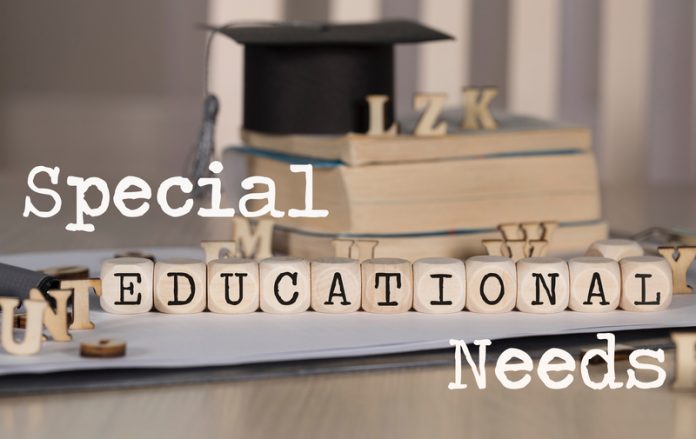
OAG highlights the work being done by the European Agency for Special Needs and Inclusive Education to help remove education barriers for vulnerable and disabled people
In 2012 the European Commission reported that around 45 million EU citizens of working age have a disability, and 15 million children have special educational needs. According to a report by the Commission, special needs children and disabled adults are “still getting a raw deal.” The report states that children with special needs often leave school with few or no qualifications, before moving on to specialist training, which can, in some cases, impair rather than increase their job prospects.
The report calls on Member States to work harder to develop inclusive education systems, and to remove the barriers faced by vulnerable groups when it comes to participation and success in education, training and employment.
The report, “Education and Disability/Special Needs – policies and practices in education, training and employment for students with disabilities and special educational needs in the EU,” (1) highlights a wide variation between Member States as to how children with special needs are identified, as well as whether they are placed in mainstream or special schools.
It states that in Flanders (Belgium), 5.2% of pupils with special needs are in segregated special schools, while in Italy it is only 0.01%. The European Commission believes that more needs to be done to harmonise definitions and improve data gathering to help countries compare their approaches more effectively and learn from each other.
Speaking about the report, former Commissioner for Education, Androulla Vassiliou said, “We have to strengthen our efforts to provide adequately financed inclusive education policies if we want to improve the lives of children with special educational needs and disabled adults.
“It is time to deliver on the commitments which have been made. Inclusive education is not an optional extra; it is a basic necessity. We must put the most vulnerable at the heart of our actions to achieve a better life for all.” (2)
The European Agency for Special Needs and Inclusive Education is an independent organisation, supported by the European Commission. Acting as a platform for collaboration between Education Ministries in Member State countries, the Agency helps them to improve their educational policy and practice for learners with disabilities and special educational needs. The Agency understands that there are differences in countries’ policies, practices and educational contexts.
The following are strategic objectives:
- To promote quality in the field of special needs and inclusive education by maintaining a long-term framework for extended European collaboration;
- To facilitate effective exchange of knowledge and experience among, as well as within, member countries;
- To identify key factors that hinder or support progress and provide countries with information and guidance;
- To analyse and review policy developments in countries in order to support the development of sustainable and effective inclusive education systems.
In a recent blog the Director of the European Agency for Special Needs and Inclusive Education, Cor J W Meijer, said, “How can we be more effective in promoting equity and excellence for all children, including those with special educational needs, and/or disabilities?” he said. “This is a question that keeps the Agency on its toes.” (3)
The Agency believes that early intervention is the key in order to help improve the lives and opportunities for students and children with disabilities. Meijer explained in his blog, that studies show that early intervention can help young people with disabilities achieve what has previously been unthinkable.
“There is a wide policy consensus at EU and international levels (OECD, UNESCO) that a quality early childhood education and care (ECEC) experience is an essential foundation for successful lifelong learning, social integration, personal development and later employability,” Meijer insisted.
“I strongly believe that early intervention is an effective strategy for children with any form of disability or disadvantage, in order to be enabled to participate in education and society.
“Numerous studies on specific interventions with samples of children show that young children with disabilities definitely improve with appropriate intervention,” he said. “There have been cases of younger students with disabilities who, through early intervention, achieved skills such as reading and the ability to keep a job.”
The Agency has launched a new 3-year project, which calls on member countries to follow the call to identify, analyse and subsequently promote the main characteristics of quality inclusive pre-primary education for all pupils.
The focus of the project will be on structures and processes at ECEC level in order to help develop a systematic approach to providing high-quality education in mainstream early childhood education and care (ECEC) provision.
“The project will identify which children are regarded as being at risk of discrimination and exclusion in the different countries, how these are identified, how their strengths and needs are assessed and the impact of such procedures, and how they are enabled to participate equally in quality ECEC,” said Meijer. (4)
Through this project and previous ones, the Agency hopes to raise further awareness among European countries regarding the importance of the right education and support for children and young people with disabilities and special education needs. It hopes to help achieve some of the targets of the EU Strategies. “The EU Strategy in 2009 set as one of its goals that at least 95% of children between the age of 4 and the age of compulsory primary education should participate in ECEC,” Meijer explained.
“High-quality early childhood education and care are seen as essential to the achievement of 2 other EU 2020 targets: reducing early school leaving to below 10%, and lifting at least 20 million people from poverty and social exclusion.”
More information about the European Agency for Special Needs and Inclusive Information can be found here: www.european-agency.org/
1 http://www.nesetweb.eu/sites/default/files/NESSE-disability-specialneeds-report-2012.pdf
2 http://europa.eu/rapid/press-release_IP-12-761_en.htm
3 https://www.european-agency.org/news/directors-blog/inclusiveearly-childhood-education
4 Ibid
Open Access Government










